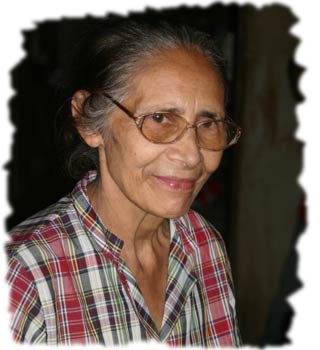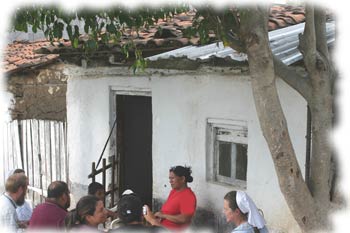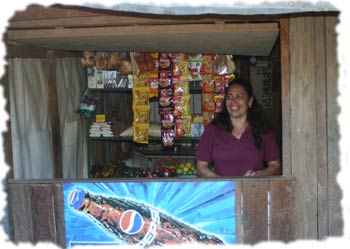
Newsletter - January, 2008
|
January, 2008 Assuredly, I say to you, inasmuch as you did it to one of the least of these My brethren, you did it to Me." Matt. 25:40 Published by the Society of the Good Shepherd, P. O. Box 122, Amberson, PA 17210. (717) 349-7033 |

|
During the past five years, more and more Christian ministries, as well as humanitarian agencies, have started using microloans to help the poor in developing countries. The fact that other ministries and agencies are using microloan programs enables us to learn from their experiences as to what they find works best. At the same time, there are some practices used by others that we don’t want to follow. For example, most agencies charge high rates of interest for their loans—such as 15% per annum. These rates are still lower than what the banks charge in developing countries. However, we’re not comfortable in charging such interest, even though it may work effectively. Yet, there are a number of practices that Gary has learned from studying other microloan programs, which we are putting into practice in Comayagua.

|
Another new step we’re taking in Comayagua is that the loans are being made in increments, instead of all at once. In general, we are first making maximum loans of $200 per person. As in our program in Siguatepeque, the loan recipients have to present us with a reasonable plan as to how they will use this loan to enhance their present business (or start a new business). When each member of the group pays off his loan as agreed upon, then all members who haven’t been delinquent qualify for a second loan of up to $200.00. This gives the group members incentive to faithfully pay off their first loan, so they can obtain more capital to invest further in their businesses. Since everyone in the group is held back because of the delinquency of one member, it creates peer pressure for all to be faithful. Our plan is to continue to make incremental loans up to a total of around $1500 per person, so long as the person has a reasonable method of using the extra funds to enhance their business.

|
Since this is still in the infant stage, it is too soon to report on how well these new methods are working. Deborah and I will be visiting Comayagua at the end of January, when we will be able to learn more about how things are going there and discuss with the group any problems they are experiencing. Please remember the Comayagua project in your prayers! DB
Click on the following link if you would care to make a donation to the work in Honduras: Donations
|
|